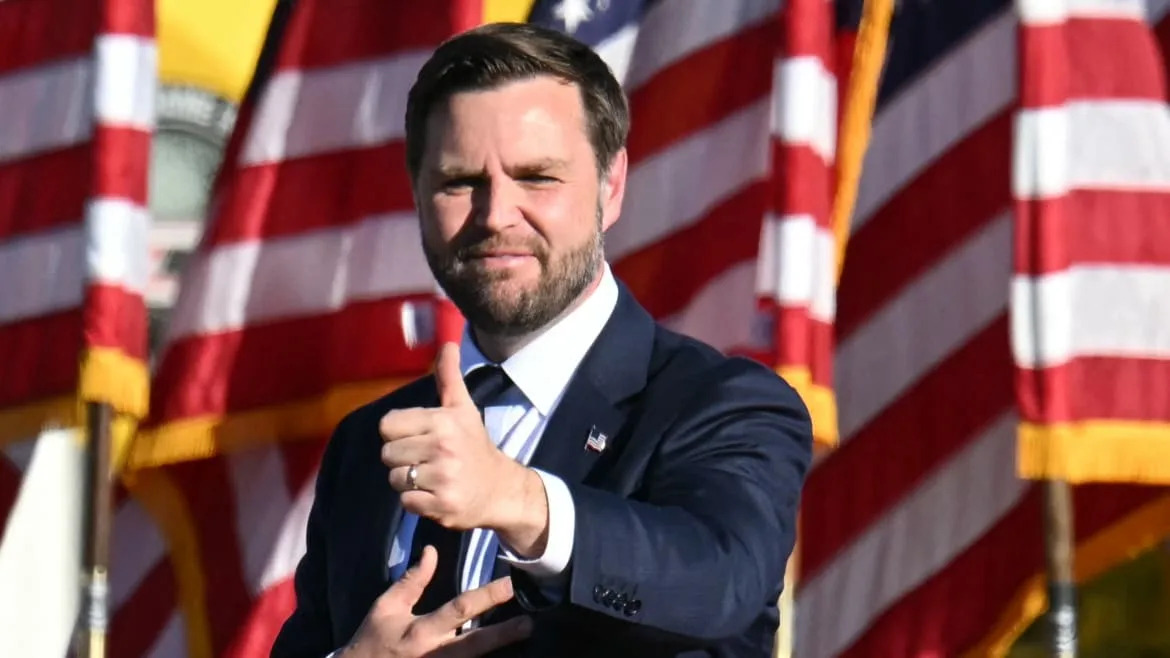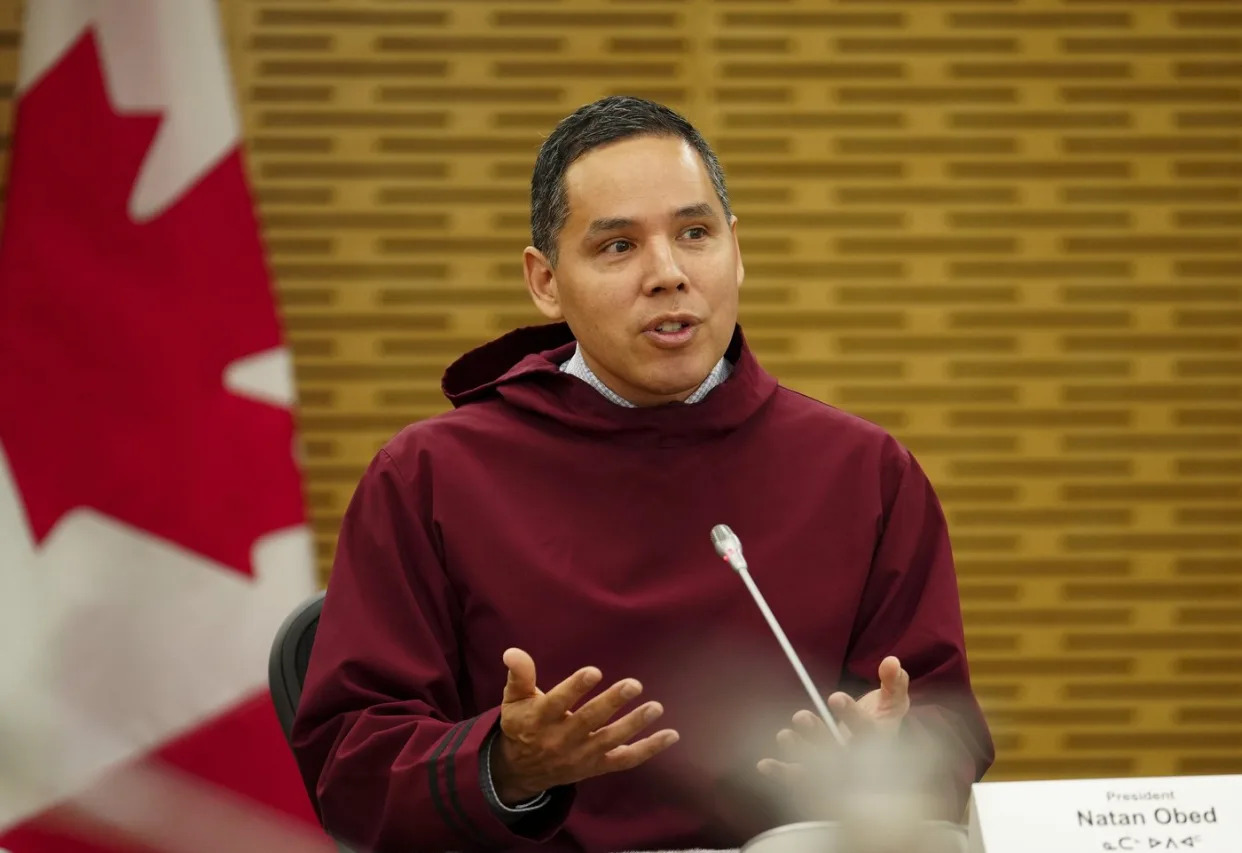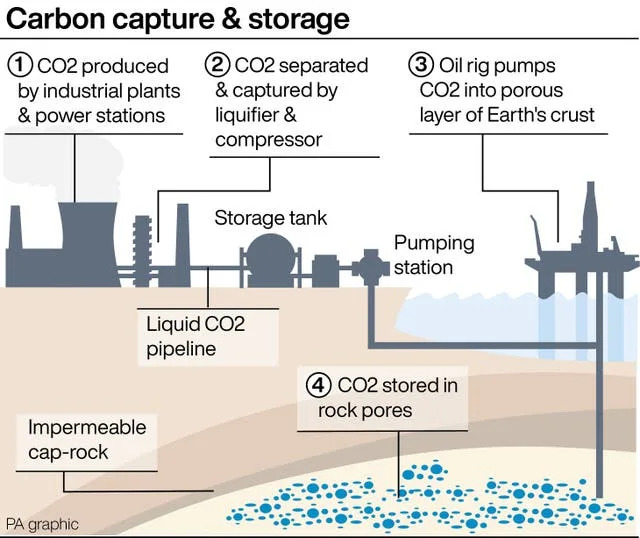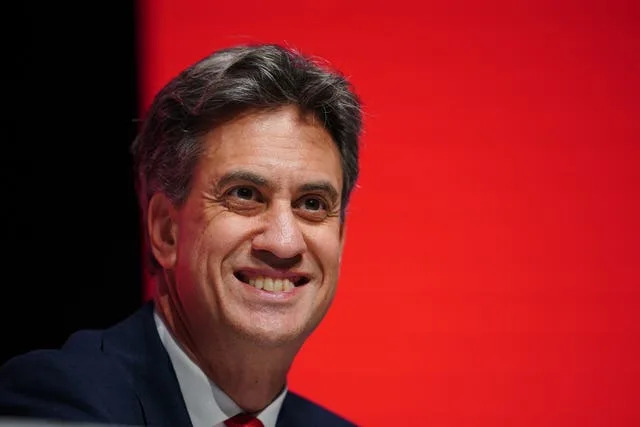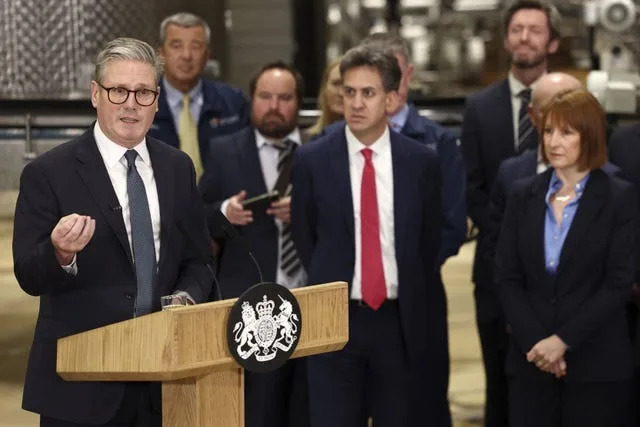Elon Musk And Tucker Carlson Laugh Over Idea Of Kamala Harris Assassination
Elon Musk and Tucker Carlson shared a hearty laugh over the prospect of Democratic presidential nominee Kamala Harris being assassinated. (Watch the video below.)
On Carlson’s X show posted Monday, Musk revisited his widely rebuked comment on social media last month that “no one is even trying to assassinate Biden/Kamala” after the apparent second attempt on Trump.
“I made a joke which, I realize, I deleted, which is like no one is even bothering to try to kill Kamala because it’s pointless,” Musk told Carlson as the two cracked up. “What do you achieve? Nothing. Just find another puppet.
“It’s deep and true,” the fired Fox News commentator said.
“Nobody’s trying to kill Joe Biden. That would be pointless,” the X owner followed.
Carlson continued the exchange by asking about the post, “You actually put that up?”
“People interpreted it as though I was calling for people to assassinate her, but I was like … doesn’t it seem strange that no one has even bothered to try?” Musk replied, laughing. “Nobody tries to assassinate a puppet.”
“That’s hilarious,” Carlson said amid more guffaws. (The Secret Service reportedly didn’t find it as funny as these two.)
“She’s safe,” Musk snarked.
Musk, who appeared at Trump’s rally in Butler, Pennsylvania, on Saturday, tried hard to play billionaire provocateur in the interview. The X owner repeated his claim from the event that “it’s the last election we’re gonna have” if Trump loses because an influx of immigrants in swing states will eventually vote Democrat. He also pondered how long his imaginary prison sentence would be.
Fast-forward to 0:40 for their conversation about Harris:
“Why they want to kill Donald Trump?” the post read.
“And no one is even trying to assassinate Biden/Kamala,”
Joe Sommerlad
Tue 8 October 2024
Elon Musk made it clear he has no regrets over his X post pondering why no one had tried to assassinate Kamala Harris or Joe Biden, when he sat down for an interview with Tucker Carlson on Monday night.
On Sunday September 15, the CEO of X, Tesla and SpaceX sparked outrage when he responded to a social media post about the second alleged assassination attempt on Donald Trump.
“Why they want to kill Donald Trump?” the post read.
“And no one is even trying to assassinate Biden/Kamala,” Musk responded, followed by the pondering face emoji.
Musk joined former Fox News host Carlson on X on Monday, where he was asked about the scandal.
“I made a joke that no one’s even trying to kill Kamala because it’s pointless,” he said. “What do you achieve? Nothing. They’ll just put in another puppet.”
“It’s deeply true,” conservative commentator Carlson responded.
“Some people interpreted it as I was calling for people to assassinate [Harris], but I was like… doesn’t it seem strange that no one has even bothered to try,” Musk continued, laughing. “No one tries to assassinate a puppet.”
The tech mogul’s post came after accused would-be gunman Ryan Wesley Routh was caught allegedly pointing a rifle through the fence at Trump’s Florida golf course while the Republican presidential nominee was playing a round.
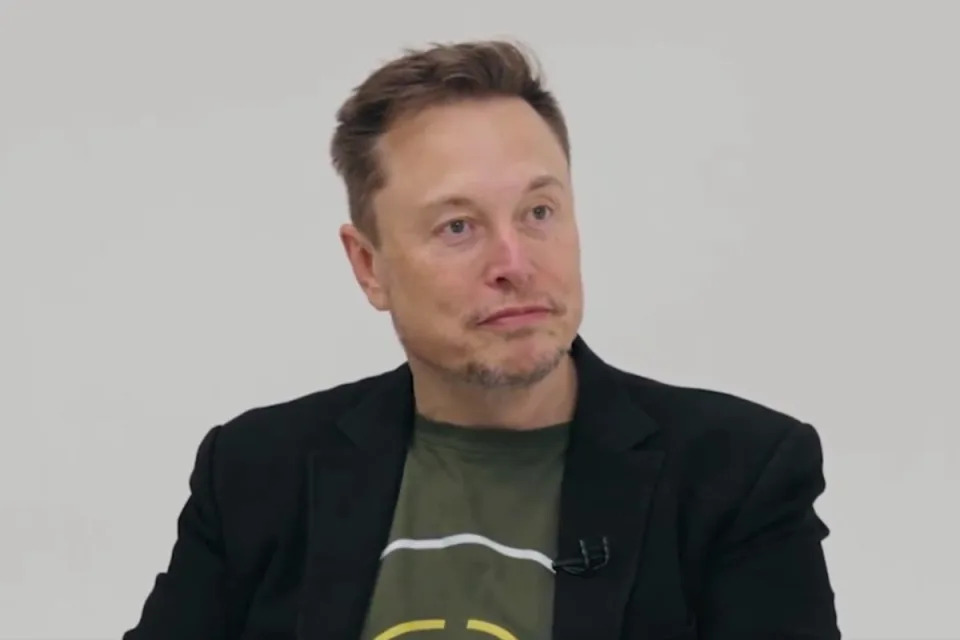
Elon Musk was interviewed by Tucker Carlson on X on Monday October 7 2024
Authorities said that Routh was spotted by Secret Service agents who opened fire, causing him to flee the scene. The suspect was apprehended soon after.
Musk later deleted his comment following uproar.
In a follow-up post, he added: “One lesson I’ve learned is that just because I say something to a group and they laugh doesn’t mean it’s going to be all that hilarious as a post on X.
“Turns out that jokes are way less funny if people don’t know the context and the delivery is in plain text.”
Musk came out in support of Trump earlier this summer following the first attempt to kill the former president at a rally in Butler, Pennsylvania, on July 13.
The endorsement cemented the tech entrepreneur’s personal shift towards the right since the Covid-19 pandemic and was followed by him conducting an X Spaces interview with Trump, who has, in turn, touted Musk as a future member of his potential second administration to be tasked with cutting inefficiency in the workings of the federal government.
Musk has said he would be “willing to serve” in a prospective second Trump administration and appeared alongside the candidate at his return to Butler on Saturday, announcing himself to the crowd in excitable fashion as a member of “Dark MAGA” and warning that the future of the country is at stake if Harris and Tim Walz win in November.
Having gone all-in on Trump, Musk admitted to Carlson on Monday that he is “f***ed” if Trump does not emerge victorious on November 5.
“It does seem that way,” the pundit laughed.
“I’m like, ‘How long do you think my prison sentence is going to be? Will I see my children?’ I don’t know,” Musk responded.
“I have no plausible deniability and I’ve been trashing Kamala non-stop!”
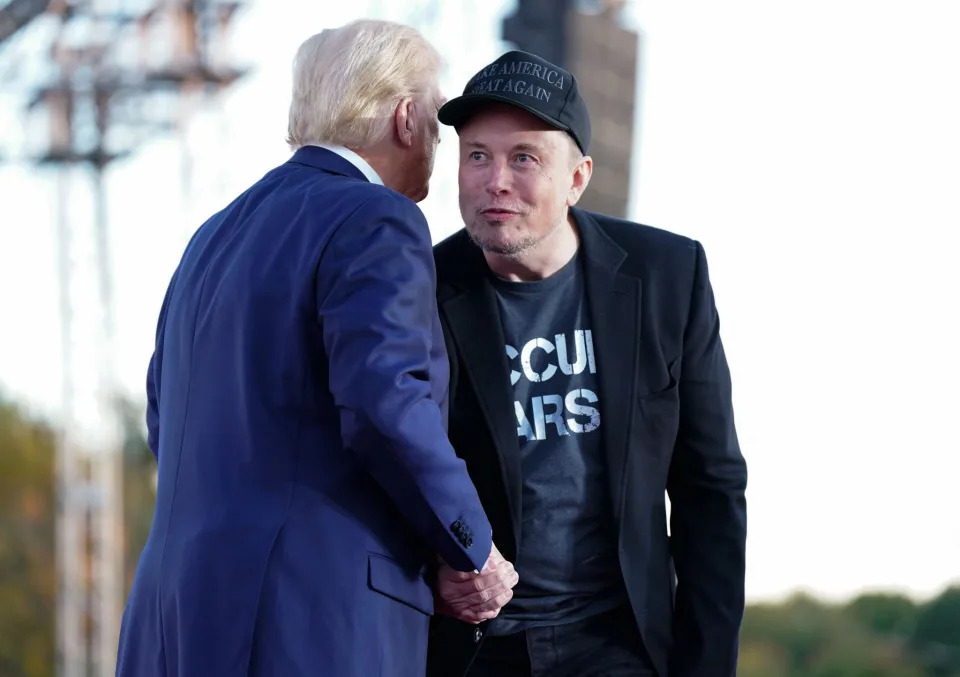
Mon, October 7, 2024
Tesla CEO Elon Musk is paying a bounty for voter registration data with the help of a petition as he seeks to return Donald Trump to the White House this November.
The world’s wealthiest entrepreneur confirmed his political action committee, America PAC, will offer a $47 reward for the name, address, and phone number of each registered voter in battleground states who signs an online statement in favor of rights already protected by the Constitution.
The amount, symbolic for the 47th presidency to which Trump aspires, will go to the person who refers the swing state voter.
“Goal is to get 1 [million] voters in swing states to show support for free speech & right to bear arms,” Musk posted on Sunday. “Easy money.”
Under the offer, which expires on Oct. 21, only individuals in Pennsylvania, Georgia, Nevada, Arizona, Michigan, Wisconsin, and North Carolina stand to receive a reward.
Voters in Musk’s adopted state of Texas, for example, are not eligible for the reward even if they are registered to cast a ballot in the 47th presidential election—regardless of their support for the Constitution.
Since the petition is not affiliated with Trump's Republican Party, signatories are not directed to the RNC website. Instead they must enter their personal data—including name, postal address, email address, and cell phone number—directly into the America PAC database.
Eligible voters may only list one person as their referrer, and the PAC intends to make sure the info it bought is worth the money. "Before payment is made America PAC will verify the accuracy of all information of the referrer and referree," it stipulates.
Once that is done, Musk's political vehicle has all the relevant data it needs to deploy canvassers to their neighborhood to ensure voters do show up on polling day.
Neither Musk nor America PAC responded to a request for comment from Fortune.
The 1-million-voter target may not seem like much, but campaign experts often note that Biden won the electoral college and, with it, the presidency by a margin of just 44,000 votes in a handful of states that flipped from red to blue.
Set against that number, 1 million potential new Trump voters could easily affect the election outcome.
It could cost Musk millions
On Sunday, the Tesla CEO made his first campaign appearance alongside Trump in Butler, Pa., where a would-be assassin made an attempt on the life of the former president this summer.
That day in July also marked the start of Musk’s public endorsement of the former president.
“President Trump must win to preserve the Constitution. He must win to preserve democracy in America,” he told the crowd.
Left in power, the Democrats would find a way to do away with Americans’ inalienable rights protected under law, he claimed.
Should Harris be declared the victor next month, Musk added, “this will be the last election—that’s my prediction.”
With his 200 million followers on X, Musk has become Trump’s most vocal and valuable champion. Yet his wholesale partisanship has driven a split within the Tesla community that broadly skews progressive.
“As you can see, I’m not just MAGA, I’m Dark MAGA,” Musk said at the rally, sporting a Make America Great Again baseball cap colored black instead of red.
In theory, America PAC’s move to buy voter data could get expensive for Musk.
Pennsylvania—the biggest battleground state prize on the electoral map with 19 electoral votes up for grabs—has nearly 8.7 million registered voters as of the start of this year, according to the latest official data.
Of that total, 40% are Republicans with another 15% unaffiliated with either of the two main parties. Musk could even end up paying for the contact info of registered Democrats.
If he only got 1% of the state’s total, it would cost him $4 million.
Should his PAC achieve the full 1 million to sign the petition in support of rights already guaranteed by the Constitution, that would be $47 million right there, assuming each signatory was claimed as a referral.
Musk stands to wield heavy influence in Trump White House
For Musk, it would nonetheless be a shrewd investment.
Biden’s administration has taken a robust approach to regulation in a number of areas, enraging Silicon Valley billionaires like Musk and venture capitalist Marc Andreessen.
By comparison, Trump has a record of weakening federal regulators, like the EPA, that bind businesses in red tape.
Not only has he praised Musk’s culling of the workforce at Twitter, he’s also considering granting Musk’s wish for widespread authority to cut the federal workforce as part of a potential new “Department of Government Efficiency.”
It’s possible that the entrepreneur would first target agencies that have vexed him and his business interests.
For example, Musk threatened last month to sue the Federal Aviation Administration over what he called “regulatory overreach,” and he’s already sued the National Labor Relations Board.
But with a relatively paltry amount of cash, Musk’s various companies stand to gain significantly from a second Trump administration.
Regulations mean little if they are not actively enforced—and Musk could wield considerable influence over agency resources like personnel.
Trump, who got elected in part thanks to a claim that he was rich enough not to be bought, is facing high legal costs and is now heavily dependent on Musk’s backing to mobilize voters.
Earlier this year, Trump installed his daughter-in-law as chair of the Republican Party, and ever since, he has pioneered the use of outsourcing—a common business practice—in political campaigning.
This story was originally featured on Fortune.com
